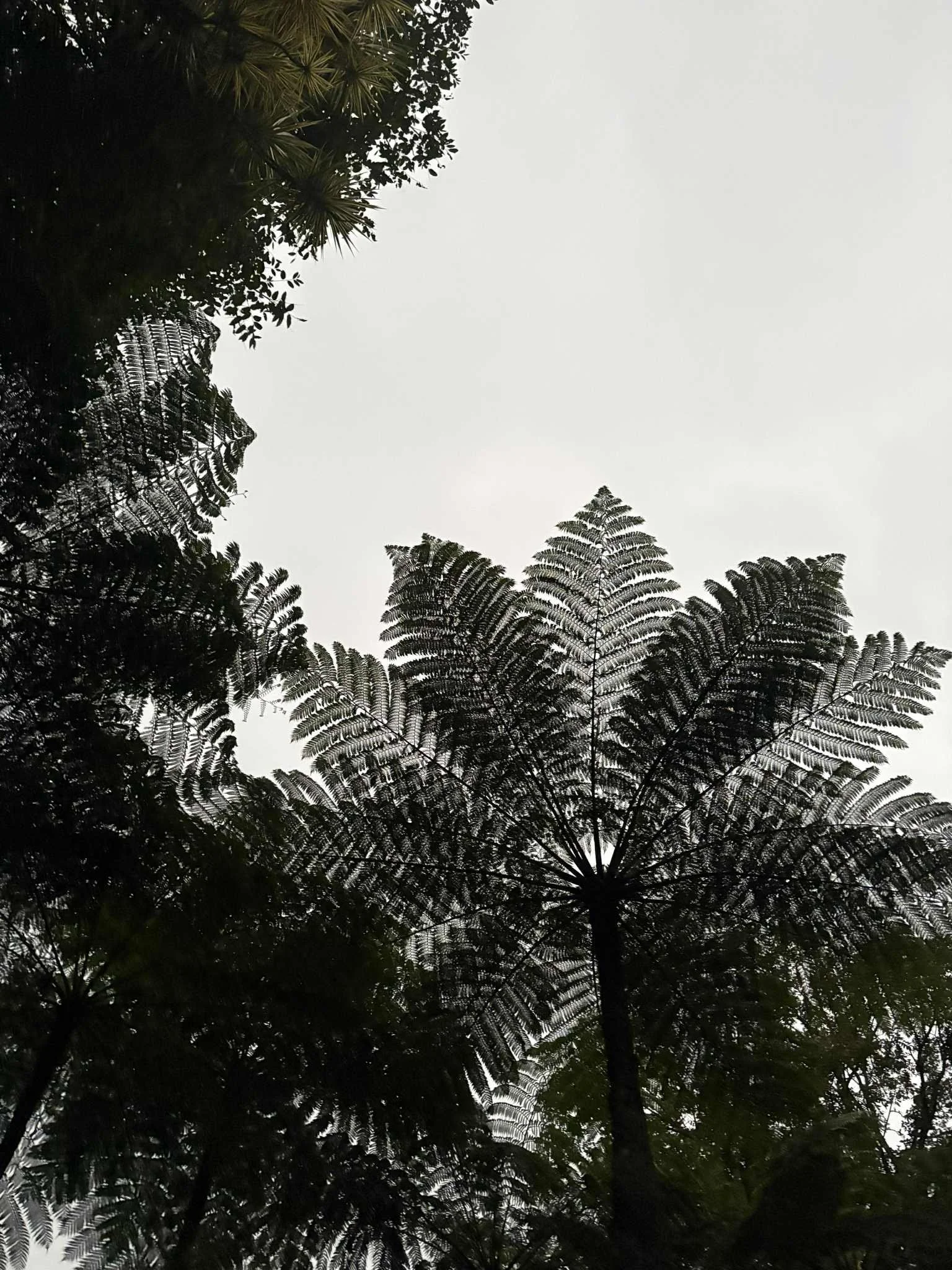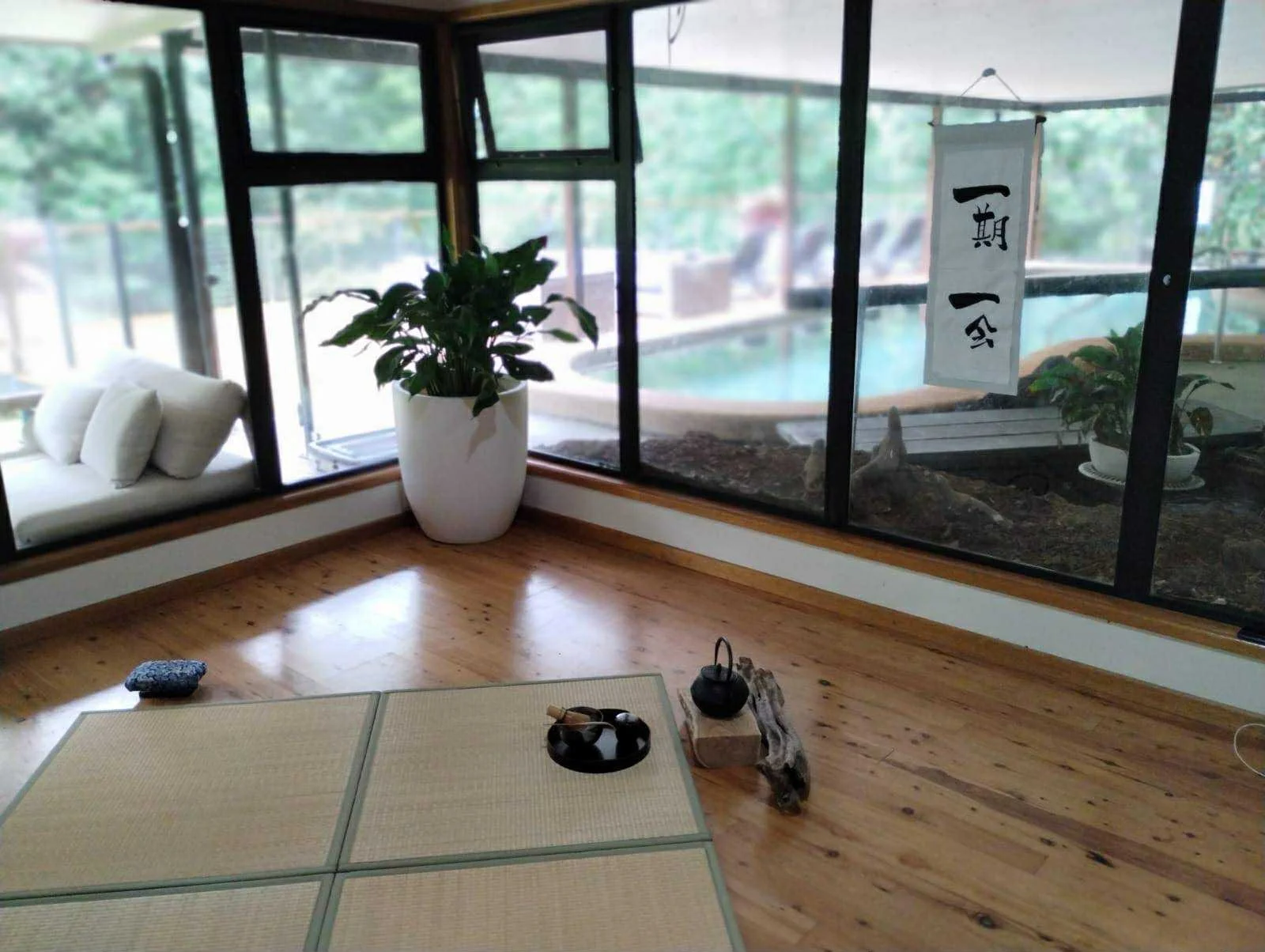Listening for IKIGAI: A Midlife Reflection on Purpose, Burnout & Dr. Mieko Kamiya’s Wisdom
Listening for IKIGAI: My Midlife Journey with Rainforest Roots and Kamiya’s Wisdom
1. Opening: The Rain Begins
I was quietly excited about what was going to unfold — not nervous, but curious. I felt supported, knowing I had a strong team of co-facilitators, and some of the retreat members were women I’d been working with for years. It almost felt like a little girl’s getaway, intimate, familiar, light-hearted.
The staff at the Chambers greeted me with warm smiles and gentle presence. It was overcast, and a light sprinkle of rain enhanced the smell of the rainforest, that rich, loamy green scent that settles into your lungs and slows your pace. I felt that “ahhh” moment, like the first sip of tea. I was relieved. I was here.
2. Arrival and Burnout: The Quiet Collapse
Leading up to the retreat, my focus was entirely on organisation and logistics, making sure everything would flow smoothly and gracefully. I wanted to immerse myself in the experience too, to enjoy it alongside everyone. So I poured myself into emails, Facebook Messenger chats, Zoom calls, consent forms, health questionnaires, breakfast prep, all the behind-the-scenes layers that help a retreat feel effortless from the outside.
But in focusing so much on those moving parts, I didn’t leave much room to reflect on how I wanted to experience the retreat, or how I might show up in a way that fed me, too, not just as a co-facilitator, but as a woman, a midlife guide, and a soul practitioner. I had loosely agreed to "play it by ear" when it came to my role within the flow, outside of key facilitation points, but this meant I often stepped back instead of stepping in.
After the retreat ended, even though it was truly successful, we received beautiful feedback. I began to feel a quiet frustration stir. A little inner demon, as Dr. Kamiya Mieko might describe it. Something in me was disappointed. Not with the event itself, but with how I had quietly disappeared inside it.
I longed for more moments that felt like mine, moments where I was fully in my element, sharing from my deeper well, not just holding space for others to find theirs.
3. Midlife & Menopause as a Subtle Thread
Sharing and demonstrating our passions during the retreat and speaking about IKIGAI made me feel quietly proud. It wasn’t just theory; it was lived, felt, embodied. I could also see my co-facilitators in their element, each expressing their own IKIGAI with such devotion. Witnessing that lit something in me, the beauty of being surrounded by women doing what they love.
As a middle-aged woman, I’ve been noticing the shifts: physical, hormonal, and energetic. But beyond those changes, I’ve felt a longing to evolve as a being. That’s one reason I craved a deeper connection with other women. I wanted to hear how they were experiencing themselves. What stories they were carrying. How they were making sense of ageing, of identity, of purpose. These were the quiet questions I brought into the retreat, hoping we could share them.
I must admit, there’s sometimes a tinge of melancholy in this phase of life. Even though I feel healthy and vibrant, there’s a WABI SABI sensibility that visits me now and then, that tender awareness that nothing lasts. That all beings, all cycles, eventually complete. And maybe because of that awareness, I feel more deeply that I want to truly live and honour the small joys that give meaning to my days. That little joy of IKIGAI is no longer optional. It’s essential.
This retreat offered me space to reflect on that, and for that, I’m deeply grateful.
4. Introducing Mieko Kamiya: The Listening That Changes Everything
I was first introduced to Dr. Mieko Kamiya through Nick Kemp, founder of IKIGAI Tribe and author of IKIGAI-Kan. His work led me to discover her writing, and I was immediately drawn to her deep, compassionate approach.
Dr. Kamiya was a psychiatrist who devoted herself to understanding how people living with leprosy found meaning in life, despite immense suffering and social exile. At that time in Japan, those diagnosed with leprosy were forcibly separated from society. Many were sent to isolated island sanatoriums, far from their families and communities. Some experienced such deep shame from their families that they changed their names, losing not only physical freedom, but emotional identity.
Life in those facilities was far from gentle. It was physically demanding and heavily restricted. Even when two people met and fell in love, they weren’t permitted to marry or share their lives freely. The layers of loss, personal, bodily, relational, are almost unimaginable.
And yet, this is where Dr. Kamiya began to see something remarkable.
She found that some of the patients with the most severe symptoms, those most physically impacted, were still able to find small joys in their days. Sometimes more so than those with milder conditions. This discovery moved her deeply. She listened closely, not just to their stories, but to what still made them want to live. What gave them energy? What allowed them to wake up each morning, despite everything?
This became the heart of her IKIGAI work: the quiet pursuit of meaning, even within limitation.
Reading about her work made me wonder, too: What drives us forward, even in pain?
How do we perceive our lives when everything external seems taken away?
Dr. Kamiya found her own IKIGAI through this research, through bearing witness, through writing, through asking the same deep human questions I’ve been carrying. She said that while writing her book, her hands moved with ease. Her passion carried her. Her purpose flowed through her.
But she also spoke about facing her demons. Frustrations. Conflicts between her inner calling and the roles she was expected to fulfil, as a daughter, a wife, a woman in a male-dominated system. She longed to pursue a PhD, to devote herself fully to research, but found herself pulled in many directions — something many midlife women still understand too well.
Her story has stayed with me. It feels like a quiet mirror.
5. IKIGAI is Like Breath
IKIGAI is not something we achieve; it’s something we live with, every day.
It’s not a destination or a title.
It’s a quiet companion.
A rhythm we can choose to walk with.
Like breath, it’s always there, whether or not we’re paying attention.
When we align with it, life begins to feel more meaningful, even in the simple things.
IKIGAI helps me feel alive, not because of outcomes, but because of how I relate to the moment I’m in.
This time, I wanted to go deeper.
That’s what brought me to the quote I’ve been holding close:
“IKIGAI is like breath.”
The Japanese word itself reflects this beautifully.
IKI means “life” or “to live.”
GAI means “worth” or “value.”
So it makes complete sense to me that IKIGAI is not something we chase, but something we choose to live with, moment by moment.
At the retreat, I allowed myself to immerse, even through emotional turbulence. And yes, it came. It always does.
But this time, I expected it.
Because I’m in midlife now.
Because life is shifting.
Because I know I have a choice.
Life is still being given to me, but now, it’s up to me how I meet it.
Becoming aware of my inner state, of what holds meaning, has become essential.
Maybe it’s this stage of life.
Maybe it’s the gift of change.
Maybe it’s all of it, arriving as breath.
IKIGAI is not a destination or a title.
It’s a quiet companion.
A rhythm we can choose to walk with.
6. Closing: IKIGAI as Hope, Connection, and a Life Lived Gently
The weeks after the retreat have been quietly revealing. I’ve been sitting with myself, with my emotional state, with the meaning of what surfaced, and with the space it created. At times, it feels as though there’s a part of me gently observing from the outside, not fully immersed in the emotion, but not distant either.
Of course, some days I am inside it; right in the thick of feeling. And when those moments come, I remind myself to let it move through me. I don’t have to rush to solve anything. It’s as if a gentle inner voice wraps a soft blanket around me and whispers: It’s okay. You’ll be fine. Just let it be for now.
I think this is the gift of midlife. The ability to hold ourselves with presence, and to hold others, too.
Because I’ve walked through my emotional complexity, I can more easily sit beside others in theirs. I don’t need to fix them. I can help them see what’s already within. Often, it’s simply acknowledging ourselves that brings the deepest shift.
I’ve come to believe that human connection is essential for healing.
To be heard without judgment.
To be seen without needing a solution.
That kind of presence offers something sacred — hope.
And hope, to me, is IKIGAI.
These days, my IKIGAI isn’t found in big declarations.
It’s found in my morning walks with my puppy.
In a quiet coffee and daily conversation with my partner.
In the simple joys that remind me I’m connected, alive, and choosing presence.
I hold this alongside the truth of WABI SABI, the deep knowing that everything changes. That life is impermanent. That we live best when we live with that awareness.
Life is often unclear. We don’t always get what we expect.
And in a world promising perfection, ease, and speed, we risk forgetting what it means to live deeply.
Living isn’t something we outsource.
It’s not a product.
It’s a personal rhythm, a quiet return to ourselves.
No one can teach us exactly how to live our lives.
We must feel our way forward, gently, imperfectly, breath by breath.
So maybe today, simply ask yourself: what little things bring me joy, and how does that joy feel in my body, in my heart?



